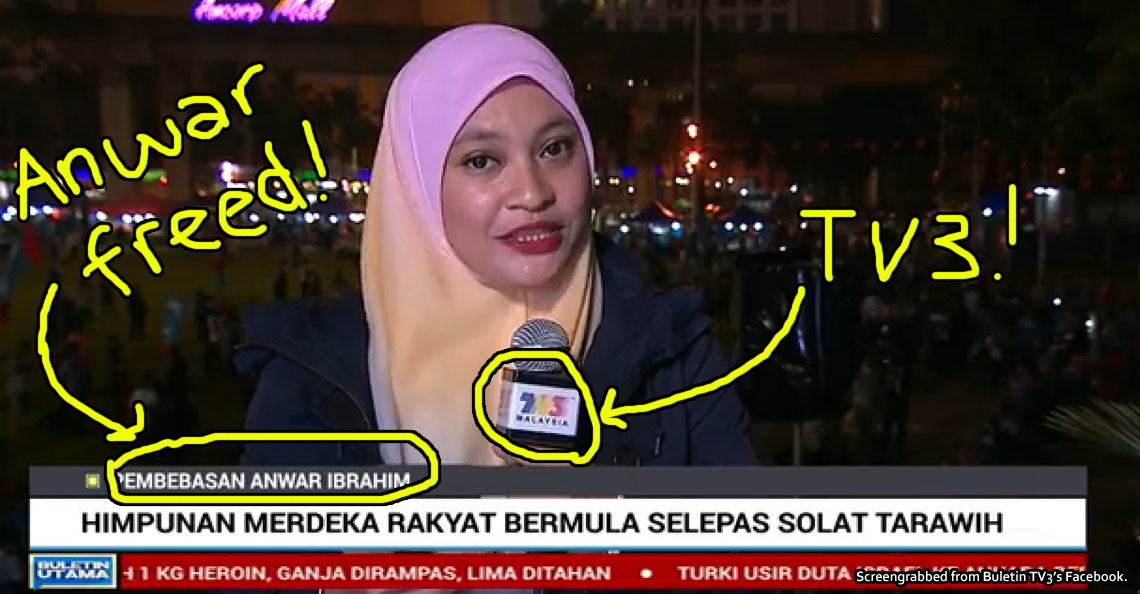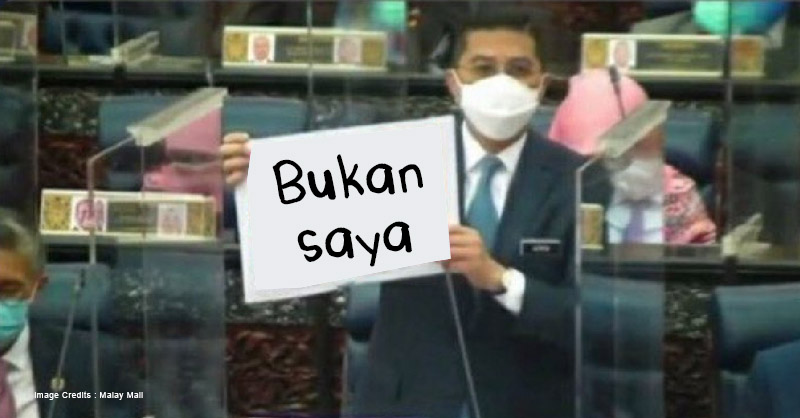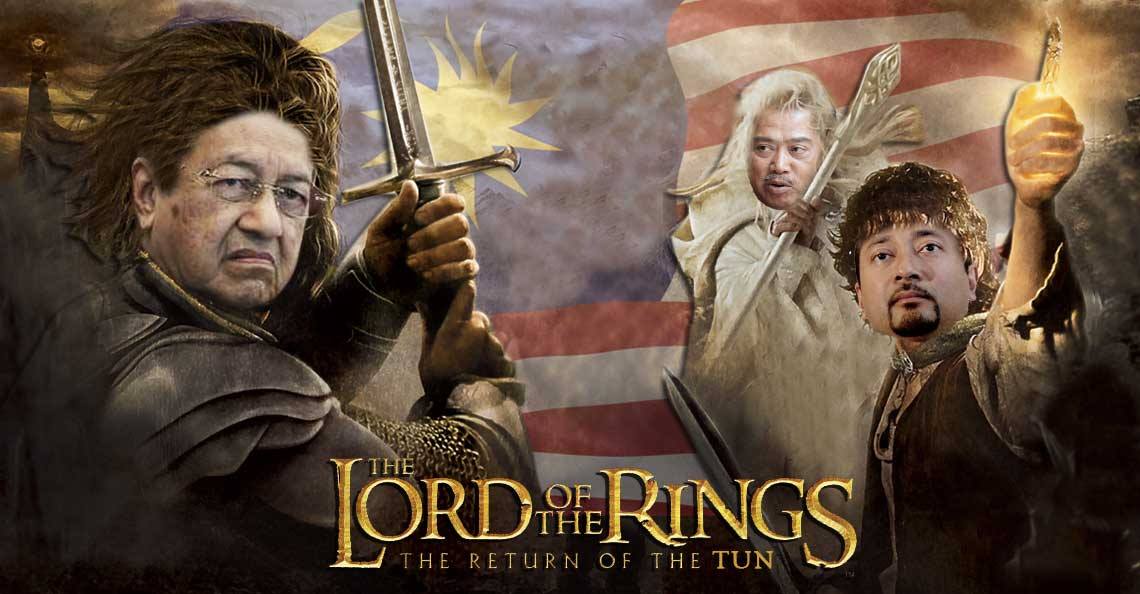Malaysia’s only the second country to remove its parliament’s speaker – Who’s the first?

- 204Shares
- Facebook171
- Twitter7
- LinkedIn8
- Email6
- WhatsApp12
As you have probably noticed, the uproar of the Covid-19 pandemic in Malaysia has kinda been dying down with the dwindling numbers and the reopening of interstate borders. But there’s something else back in fashion, which is the political turmoil that started back in February 2020.
It’s already been a little more than four months since our Malaysia Baru – led by Pakatan Harapan (PH) – unwillingly had their last curtain call on our colorful political stage, replaced by the newly minted Perikatan Nasional (PN) coalition. With new Prime Minister Muhyiddin Yassin at the helm, the new government’s been hard at work replacing leaders in government-linked corporations (GLCs) and calling up opposition MPs for questioning.
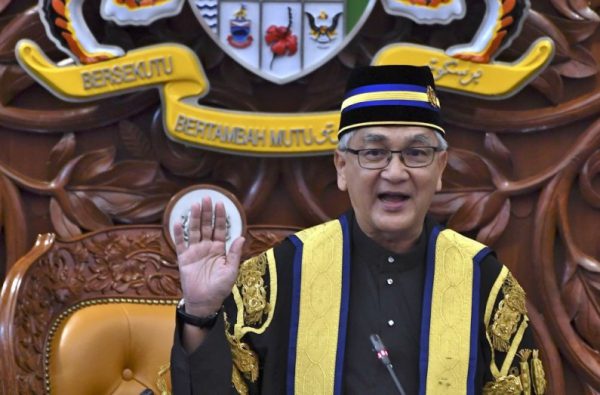
In their latest move, the PN administration’s also successfully removed Mohammad Ariff Yusof from his role as the Dewan Rakyat Speaker. This is seen as an unprecedented move, and Ariff agrees.
“This is unusual and I don’t know if any other country has removed a speaker, apart from Trinidad and Tobago, in such a manner.” – Ariff, as quoted from Malaysiakini
According to Ariff, his removal served as a historical move, because Malaysia may be the only country that’s removed a Speaker before their term ends. He also mentioned that the last time something like this had happened was in 1995 in the Republic of Trinidad and Tobago, but that’s only because their Speaker was suspected of corruption.
Wait, what on earth is he talking about?
In 1995, Trinidad and Tobago also removed their Speaker of the House
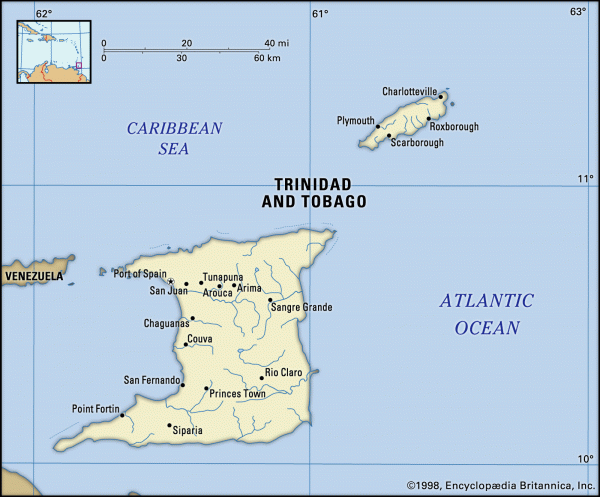
In case your geographical knowledge needs a little brushing up, the Republic of Trinidad and Tobago is a country in the Caribbean region – no, this is not Pirates of the Caribbean and Johnny Depp certainly isn’t sailing around with monstrous creatures as a pirate. But to keep it simple, let’s just call them Trinidad and Tobago from now on.
Trinidad and Tobago, like us, uses the Westminster model of government and parliamentary system that they inherited from the British. That means they also have a Parliament, MPs, and a Speaker of the House – or Dewan Rakyat Speaker, in our own terms.
And in 1995, just like us, Trinidad and Tobago also set a precedent by removing their Speaker before the end of their term, and the Speaker in question was a lady called Occah Seepaul.

So what exactly happened in Trinidad and Tobago for them to remove Seepaul as their Speaker in 1995
Well, at the time, their PM was a fella called Patrick Manning, and he initially had a pretty good relationship with Seepaul, but for some reason, Seepaul apparently fell out of favor with Manning. It was also said that the government also started growing suspicious of Seepaul’s influence in Parliament.
In that same year, Seepaul was brought to court on the charge of corruption, but the case was later dismissed. But still, the government filed a motion of non-confidence against Seepaul anyway in an attempt to remove her from her seat, further accusing her of plotting to overthrow Manning and his administration with her influence. Seepaul refused, dismissing the motion and insisting that she wouldn’t vacate the seat.
“The motion is unfounded, misconceived, and is an abuse of the rules of House of Representatives and the parliamentary process, and is wholly out of order.” – Seepaul, as quoted from Journal of Legislative Studies

In retaliation, Trinidad and Tobago government went as far as trying to amend the Constitution so they can suspend or remove a Speaker before their term’s ended. And then they went on to put Seepaul under house arrest and declare a state of emergency in the country until Seepaul’s gone.
Following that, Seepaul was successfully kicked out of Parliament 1995, with the reason being that she had allegedly been planning to overthrow Manning and his administration. This whole thing then made the Republic of Trinidad and Tobago the first ever country to remove a Speaker of the House before the end of their term. And no other country’s tried repeating the same thing.
Well, that was until…
Malaysia’s very own Speaker was removed in 2020

Since so many things have been happening with our government recently, we figure you’re probably a little confused as to how Mohamad Ariff Yusof came to be removed in the first place, so here’s a rundown.
On the 27th of June this year, Muhyiddin submitted a motion to remove Ariff and his deputy Nga Kor Ming from their roles in Dewan Rakyat. Oddly enough, the motion didn’t touch on the other deputy, Rashid Hasnon, at all.
The move predictably turned out to be a subject of much debate between the government and the opposition alike, where even NGO Bersih voiced their opposing opinion to the move. Even former PM Mahathir Mohamad countered Muhyiddin’s motion with a motion to retain Ariff as Dewan Rakyat Speaker, which Ariff himself had rejected.
“Our position is simple, we will respect the decision made by the Dewan Rakyat. If the house wants us to remain, we will remain. If it wants us to leave, we will leave.” – Nga, as quoted from Malaysiakini

And so, on the first day of Dewan Rakyat sitting, which was on the 16th of July this year, the MPs were asked to vote on Muhyiddin’s motion to remove Ariff as Dewan Rakyat Speaker, even delaying lunch to place their votes. In the end, Ariff was successfully voted out of his seat on a narrow margin of 111 votes in favor against 109 votes against. But before the MPs could go on to vote on whether to remove Nga as well, Nga himself proceeded to resign as a sign of solidarity with Ariff.
On the same day, Ariff was replaced by former Election Commission chief Azhar Harun, while Nga was replaced by Pengerang MP Azalina Othman Said, who also became the first woman to hold a Deputy Speaker position. And these appointments also became a subject of heated debate after Azhar and Azalina were sworn in, as opposition MPs were complaining that they were sworn in without proper voting procedure.
“I hope Yang Berhormat Speaker – we’ve got nothing against you personally, this is the office that matters – I hope you will go back and dig your conscience.” – Former Human Resources Minister M Kula Segaran, as quoted from The Edge
And thus, Malaysia became the second country to remove a Dewan Rakyat Speaker prematurely. If you look at the situation closely, Trinidad and Tobago removed Seepaul due to an alleged plan to overthrow the government, which was somewhat of a reason, while Ariff was removed without much of a proper reason at all. In fact, it was reported that the reason stated in Muhyiddin’s motion was because “there exist another candidate“.

As you can see, the seat of Dewan Rakyat Speaker seems to be pretty important to our politicians, but the question is…
Why does the Dewan Rakyat Speaker matter so much?
To put it simply, the Dewan Rakyat Speaker is kinda like a parent to all the MPs gathered in Dewan Rakyat. Basically, they sit on a special podium with their songkok and chairs and regulates Dewan Rakyat meetings to make sure all things run as smoothly as possible.
When you turn on your television during a Parliamentary session, it’s likely that you’ll find yourself watching a group of politicians yelling at each other and perhaps even cursing each other, and there’s this guy wearing a songkok sitting on a podium trying to get them to settle down. If worse comes to worst, the Speaker has the right to kick an MP out of Dewan Rakyat if they keep up with their behavior, or maybe even suspend them from Dewan Rakyat for a few days.
You know, that’s kinda motherly, in a sense, except they don’t actually whip out the rotan like old-fashion mothers do. But that’s not all a Speaker does.

Apart from keeping the MPs in control, the Speaker also has to ensure that all the motions tabled and debated in Dewan Rakyat are in accordance to the Standing Orders, which is just fancy term for rules that everyone has to follow in Dewan Rakyat. Plus, without the Speaker’s permissions, MPs are not allowed to ask supplementary questions or speak English during a debate.
However, despite those roles, the reason that our MPs can get so worked up on the Dewan Rakyat Speaker seat is most likely because no one but the Speaker has the right to accept or reject a motion sent by the MPs, based on the motion’s importance and urgency.
These are just some cliff notes of the power that the Speaker wields – you can read the rest of their responsibilities here. But by now, you can probably already tell why the MPs got so worked up over the removal of Ariff as the Speaker. So now…
Some are saying that Ariff’s removal is a plan to stabilize PN’s power

When Trinidad and Tobago did this, it was because they suspected Occah Seepaul, their Speaker at the time, was hatching a plan to overthrow the government, and they even had to amend their Constitution to do so.
Meanwhile, in Malaysia, every Speaker we’d had before Ariff had always served their full term before stepping down – until the Parliament literally voted him out this year, and the reason wasn’t really much of a reason at all.
“We’re talking about something that is not normal. This is the new normal introduced by the prime minister. It’s not provided for in the Federal Constitution.” – Mahathir, as quoted from Malaysiakini
However, what we did here wasn’t exactly unlawful, because our Constitution stipulates that our Parliament’s allowed to remove the Speaker if they put it to a vote. And well, they did, albeit with a narrow margin – like really narrow.
The removal of Ariff as our Dewan Rakyat Speaker is considered as Muhyiddin’s move to bolster his power as our new PM. It’s apparently proof that Muhyiddin has Dewan Rakyat’s confidence, but even that seems a little shaky, given that the votes were 111 for and 109 against Ariff’s removal.
We can’t know for sure what Muhyiddin’s motive in removing Ariff really was. We’re also uncertain as to whether Azhar Harun will be able to perform his duties well as the new Dewan Rakyat Speaker. What we do know is that the Ariff’s termination before the end of his term was certainly unprecedented, and the battle for Putrajaya seems to be far from over.
- 204Shares
- Facebook171
- Twitter7
- LinkedIn8
- Email6
- WhatsApp12

